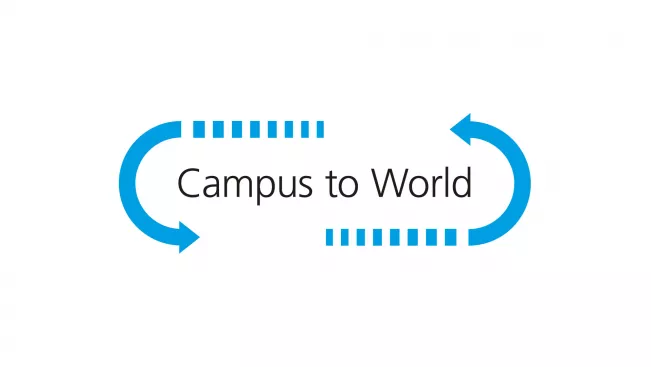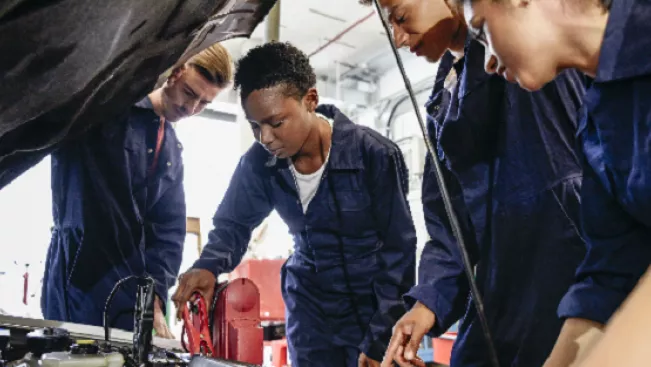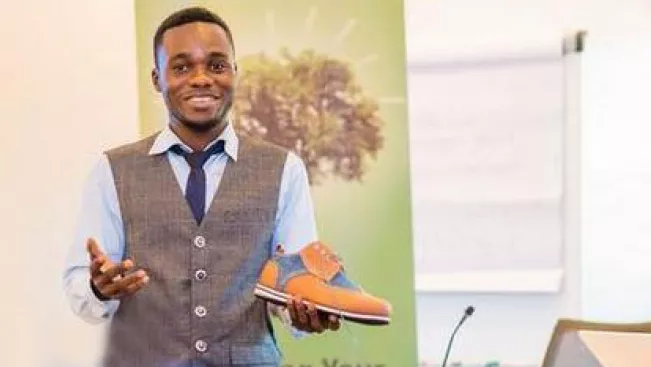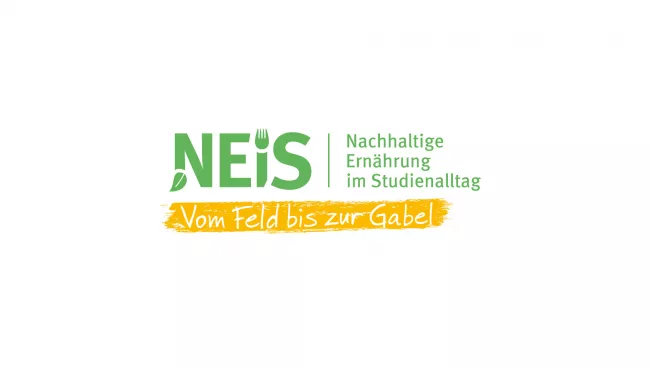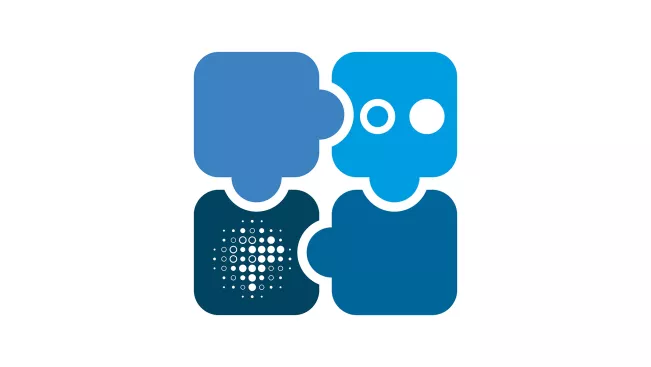Research at the university
Research Database: Projects
Forschungsprojekte (247)
Bonn-Rhein-Sieg University of Applied Sciences has adapted its existing transfer instruments to the changing demands and requirements of business and needs of business, society and science and developed new suitable transfer mechanisms. The project was funded by the federal-state initiative "Innovative University".
Within the framework of the NRW-Ghana Partnership and the funding program "NRW-Partnerships for the Promotion of Technical Universities in Ghana", the Ministry of Innovation, Economy and Research (MIWF) has been funding the university partnership project "Partnership for Applied Sciences - PASS" between the Bonn-Rhein-Sieg University of Applied Sciences (consortium leader), the Cologne University of Applied Sciences, the International University of Applied Sciences Bad Honnef and the two Ghanaian universities Kumasi Technical University and Cape Coast Technical University through the German Academic Exchange Service (DAAD) since 2017.
The aim of the project is to establish a structure that is sustainable in the long term and meets the requirements of animal welfare and environmental justice, as well as the business and social needs of livestock farms. Due to the consequences for the livestock farming industry, a broad dialog is required. This is to be worked out in the further course of a dialog process with agriculture, including the upstream and downstream economy, environmental and animal welfare associations as well as the food retail trade and consumer associations.
Project management at the H-BRS
Prof. Dr Martin HamerBET Ghana is a transdisciplinary research and transfer project between the Hochschule Bonn-Rhein-Sieg, the University of Cape Coast and partners from the consumer goods and food processing industries in Germany/Europe and Ghana. The stated overall project goal is to enhance employability and (self-) employment opportunity of students and graduates specifically in the Ghanaian consumer goods and food processing industry.
Project management at the H-BRS
Prof. Dr Jürgen BodeNEIS is a project of the consumer advice center of North Rhine-Westphalia, which is carried out in cooperation with universities at three locations in NRW. It is funded by the Ministry of the Environment, Agriculture, Nature Conservation and Consumer Protection of North Rhine-Westphalia.
Project management at the H-BRS
Prof. Dr Iris GroßThe KLUGER Transfer project stands for knowledge transfer in the fields of climate, environment and health research. The aim is to strengthen the transfer of knowledge from basic research at the Max Planck Institute for Chemistry (MPIC) via applied research at the International Center for Sustainable Development (IZNE) at Bonn-Rhein-Sieg University of Applied Sciences (H-BRS) to the public, politics and business. Different formats for targeted exchange are being tested in order to improve communication between science, society and politics.
Project management at the H-BRS
Prof. Dr Katja Bender Prof. Dr Martin Hamer Prof. Dr Stefanie Meilinger Prof. Dr Wiltrud TerlauOne goal of bioeconomic research and consulting is to help ensure that existing fossil raw materials can be used more efficiently and substituted or supplemented with the highest possible proportion of renewable raw materials. The subject of the study on grass-based paper was the comparative life cycle assessment (according to ISO 14040) of the use of sulfate pulp, recycled pulp and grass-based pulp in the German paper industry. The LCA addressed the question of the extent to which the production of paper in Germany can be made more ecologically advantageous.
Project management at the H-BRS
Prof. Dr Wiltrud TerlauDoing business sustainably, measuring this and communicating about it is becoming increasingly important - regardless of the size of a company or business. Entrepreneurial/operational and social sustainability are equally important. In an agricultural business, planning security and development opportunities are key parameters, whereas for consumers and other stakeholders, ecology and social issues are of particular importance.
Project management at the H-BRS
Prof. Dr Wiltrud TerlauThe creation and improvement of educational opportunities is essential for the sustainable development of a region. The implementation requires the cooperation of academic as well as non-academic educational institutions. A four-day symposium on this topic was held in October 2021 as a platform for dialogue in Sardinia, a hotspot of biological diversity. Prof. Dr. Wiltrud Terlau from the International Center for Sustainable Development (IZNE) at Bonn-Rhein-Sieg University of Applied Sciences (H-BRS) is hosting it together with the University of Sassari (UNISS) and other partners.
Project management at the H-BRS
Prof. Dr Wiltrud TerlauThe project is based on the idea of a quick retrofit for conventional cars and buses, in order to reduce fuel consumption, related costs and CO2 emissions by using photovoltaic panels on the roof which are connected to the existing vehicle power supply network. This reduces the load on the alternator and leads to a reduction in fuel consumption. Tasks The main task of this project is to find out if the suggested PV system is fitting sustainability criteria, if it is applicable, effective and profitable.
Project management at the H-BRS
Prof. Dr Stefanie MeilingerContact Points
Centre for Science and Technology Transfer (ZWT)
Room
F 405
Vice President Research and Transfer
Campus
Sankt Augustin
